BMW X3 vs Toyota bZ4X – Differences & prices compared
Compare performance, boot space, consumption and price in one view.
Find out now: which car is the better choice for you – BMW X3 or Toyota bZ4X?
The BMW X3 (SUV) comes with a Petrol MHEV, Diesel MHEV or Plugin Hybrid engine and Automatic transmission. In comparison, the Toyota bZ4X (SUV) features a Electric engine with Automatic transmission.
When it comes to boot capacity, the BMW X3 offers 570 L, while the Toyota bZ4X provides 452 L – depending on how much space you need. If you’re looking for more power, decide whether the 398 HP of the BMW X3 or the 343 HP of the Toyota bZ4X suits your needs better.
In terms of consumption, the values are 2.80 L per 100 km for the BMW X3, and 13.50 kWh for the Toyota bZ4X.
Price-wise, the BMW X3 starts at 50900 £, while the Toyota bZ4X is available from 36800 £. Compare all the details and find out which model fits your lifestyle best!
BMW X3
The BMW X3 stands out in the competitive SUV market with its refined blend of performance and luxury. Its interior boasts high-quality materials and a design focused on driver comfort and convenience. With a robust engine lineup, the vehicle offers a balanced driving experience that caters to both urban settings and off-road adventures.
details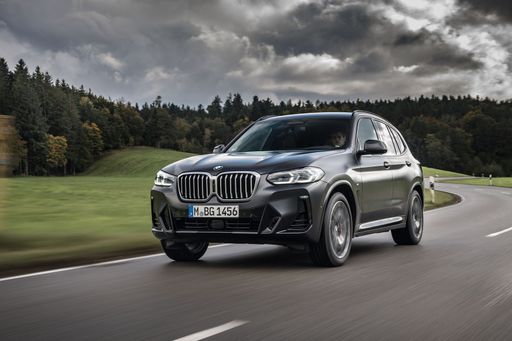 @ press.bmwgroup.com
@ press.bmwgroup.com
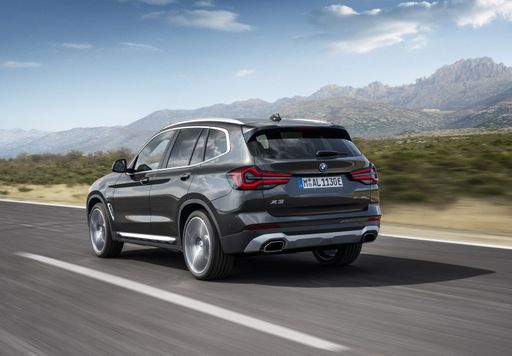 @ press.bmwgroup.com
@ press.bmwgroup.com
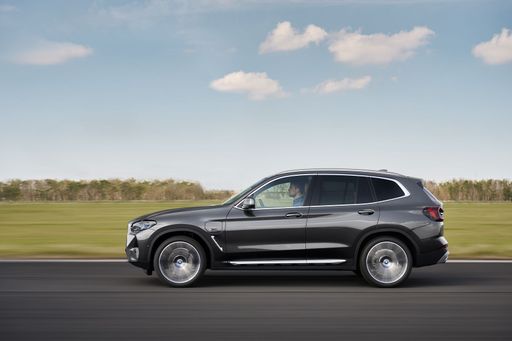 @ press.bmwgroup.com
@ press.bmwgroup.com
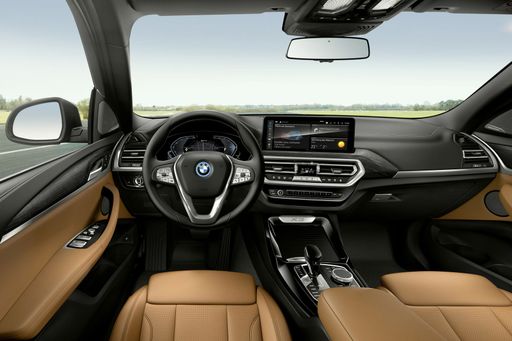 @ press.bmwgroup.com
@ press.bmwgroup.com
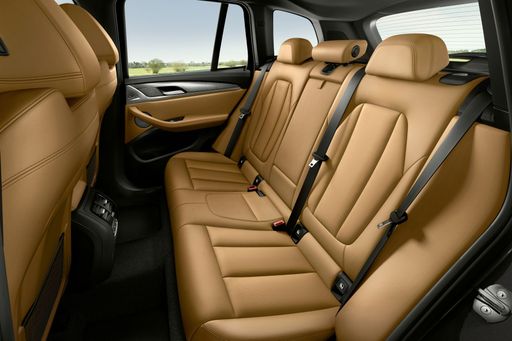 @ press.bmwgroup.com
@ press.bmwgroup.com
Toyota bZ4X
The Toyota bZ4X represents a bold step forward in the brand's commitment to electric mobility, showcasing an innovative design that merges futuristic aesthetics and functionality. Inside, the spacious cabin is thoughtfully crafted to provide comfort and advanced technology, ensuring a pleasurable driving experience. With its impressive range and sustainable vision, the bZ4X sets a new benchmark for environmentally conscious driving without compromising on performance or style.
details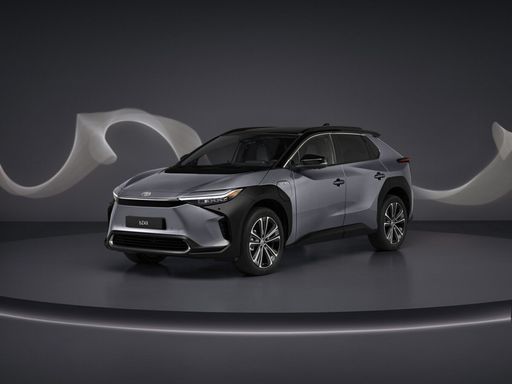 @ Toyota
@ Toyota
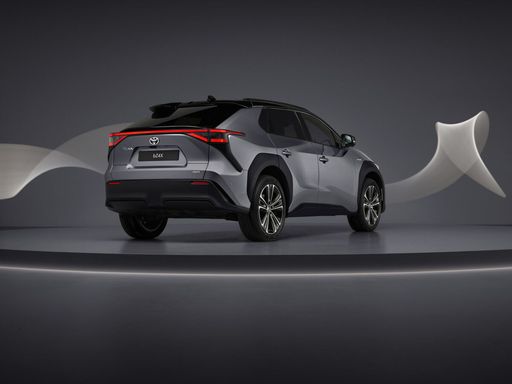 @ Toyota
@ Toyota
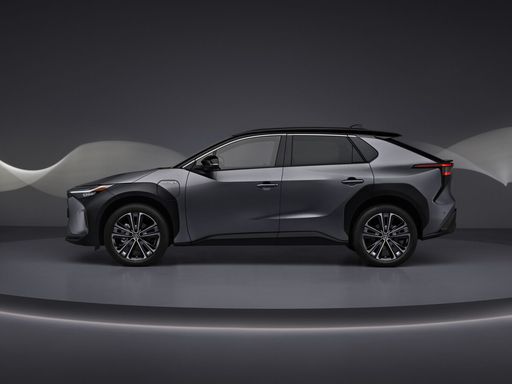 @ Toyota
@ Toyota
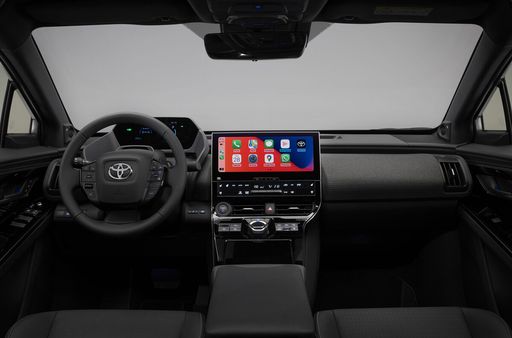 @ Toyota
@ Toyota
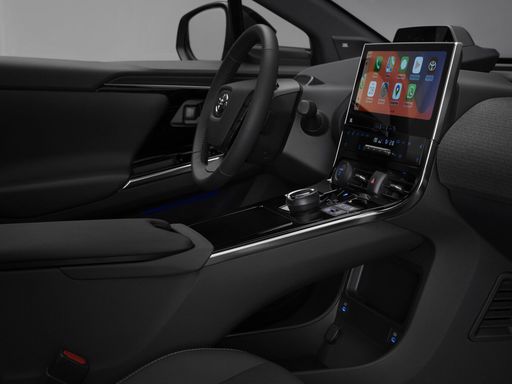 @ Toyota
@ Toyota
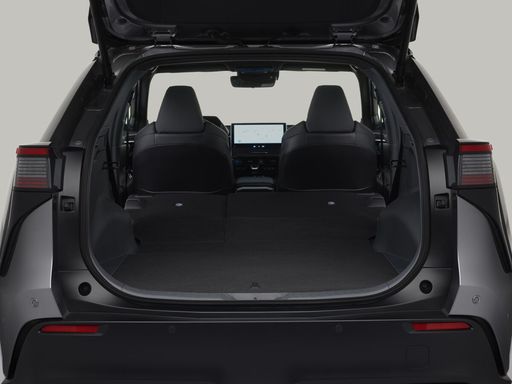 @ Toyota
@ Toyota

|

|
|
|
|
Costs and Consumption |
|
|---|---|
|
Price
50900 - 72400 £
|
Price
36800 - 48000 £
|
|
Consumption L/100km
2.8 - 7.7 L
|
Consumption L/100km
-
|
|
Consumption kWh/100km
-
|
Consumption kWh/100km
13.5 - 16.2 kWh
|
|
Electric Range
88 km
|
Electric Range
444 - 568 km
|
|
Battery Capacity
19.70 kWh
|
Battery Capacity
-
|
|
co2
64 - 175 g/km
|
co2
0 g/km
|
|
Fuel tank capacity
50 - 65 L
|
Fuel tank capacity
-
|
Dimensions and Body |
|
|---|---|
|
Body Type
SUV
|
Body Type
SUV
|
|
Seats
5
|
Seats
5
|
|
Doors
5
|
Doors
5
|
|
Curb weight
1930 - 2140 kg
|
Curb weight
1970 - 2180 kg
|
|
Trunk capacity
460 - 570 L
|
Trunk capacity
452 L
|
|
Length
4755 mm
|
Length
4690 mm
|
|
Width
1920 mm
|
Width
1860 mm
|
|
Height
1660 mm
|
Height
1600 - 1650 mm
|
|
Payload
570 kg
|
Payload
375 - 495 kg
|
Engine and Performance |
|
|---|---|
|
Engine Type
Petrol MHEV, Diesel MHEV, Plugin Hybrid
|
Engine Type
Electric
|
|
Transmission
Automatic
|
Transmission
Automatic
|
|
Transmission Detail
Automatic Gearbox
|
Transmission Detail
Reduction Gearbox
|
|
Drive Type
All-Wheel Drive
|
Drive Type
Front-Wheel Drive, All-Wheel Drive
|
|
Power HP
197 - 398 HP
|
Power HP
167 - 343 HP
|
|
Acceleration 0-100km/h
4.6 - 7.8 s
|
Acceleration 0-100km/h
5.1 - 8.6 s
|
|
Max Speed
215 - 250 km/h
|
Max Speed
140 - 160 km/h
|
|
Torque
330 - 670 Nm
|
Torque
265 - 338 Nm
|
|
Number of Cylinders
4 - 6
|
Number of Cylinders
-
|
|
Power kW
145 - 293 kW
|
Power kW
123 - 252 kW
|
|
Engine capacity
1995 - 2998 cm3
|
Engine capacity
-
|
General |
|
|---|---|
|
Model Year
2024 - 2025
|
Model Year
2024 - 2025
|
|
CO2 Efficiency Class
F, E, B
|
CO2 Efficiency Class
A
|
|
Brand
BMW
|
Brand
Toyota
|
BMW X3
Introducing the BMW X3: A Blend of Power and Innovation
The BMW X3 is a testament to the brand’s commitment to merging luxury with cutting-edge technology. This SUV not only offers impressive on-road performance but also showcases innovative features that cater to both petrolheads and eco-conscious drivers.
Powerful Performance Across the Range
The BMW X3 comes with various powertrain options to suit diverse driving preferences, ranging from efficient plug-in hybrids to powerful petrol and diesel mild-hybrids. With performance outputs ranging from 184 PS to an impressive 510 PS, the X3 proves its versatility on the road. Paired with BMW's renowned automatic transmission, each model offers a smooth and responsive driving experience complemented by the brand's xDrive all-wheel-drive system.
Leading-Edge Hybrid Technology
Among the X3's portfolio, the plug-in hybrid variants stand out with their optimal balance between efficiency and performance. These models boast electric-only ranges up to 90 km, ideal for urban driving with minimal emissions. Meanwhile, the mild-hybrid systems enhance efficiency by recuperating energy during deceleration and supporting the combustion engine, optimizing fuel consumption ranging from 0.9 L/100km to 10.8 L/100km depending on the model.
Contemporary Design with Practical Features
From a design perspective, the BMW X3 maintains its iconic SUV silhouette, characterized by robust proportions and sleek, aerodynamic lines. With dimensions of up to 4755 mm in length and a luggage capacity of up to 570 litres, it caters to both style enthusiasts and practical users. Additionally, the interior showcases BMW’s commitment to sophistication, featuring high-quality materials, state-of-the-art infotainment systems, and comprehensive driver-assistance technologies.
Efficiency Meets Performance
The X3's impressive performance figures are complemented by its responsible approach to CO2 emissions, aligning with EU efficiency standards. Enhanced by its comprehensive suite of driver aids and intelligent safety features, the X3 ensures both the thrill of driving and peace of mind.
Conclusion: The Ultimate Driving Companion
In essence, the BMW X3 represents the perfect intersection of dynamic performance, fuel efficiency, and modern-day technology. With options catering to diverse needs and preferences, it remains a leading choice for drivers seeking versatility, innovation, and luxury.
Toyota bZ4X
A New Era with the All-Electric Toyota bZ4X
The Toyota bZ4X is a groundbreaking addition to the world of electric vehicles. This 2024 SUV promises to combine cutting-edge technology, an environmentally friendly powertrain, and exquisite design, representing Toyota's ambitious journey towards a sustainable future. Let's delve into its technical highlights and revolutionary innovations.
Performance and Efficiency
The Toyota bZ4X is available with two powertrain options: front-wheel drive and all-wheel drive. The front-wheel-drive model boasts a power output of 204 PS (150 kW), while the all-wheel-drive variant offers slightly more power at 218 PS (160 kW). Both setups utilise an efficient reduction gear transmission, allowing for smooth acceleration and optimal power delivery.
In terms of energy consumption, the bZ4X demonstrates impressive efficiency. The front-wheel-drive variants consume 14.4 kWh/100 km, whereas the all-wheel-drive versions utilise 16.2 kWh/100 km. This efficiency translates to an electric range of 461 to 513 km, positioning the bZ4X as a formidable competitor in the electric SUV market.
Innovative Design and Comfort
Emphasising design and passenger comfort, the Toyota bZ4X presents a spacious interior that accommodates five passengers comfortably. With a length of 4690 mm, a width of 1860 mm, and a height of 1600 mm, the bZ4X provides generous headroom and legroom, along with a practical boot capacity of 452 litres.
Available in multiple trim levels, including Comfort, Lounge, and Team Deutschland, each model offers a host of advanced features designed to enhance the driving experience. From intuitive infotainment systems to luxurious upholstery, the bZ4X prioritises driver satisfaction and convenience.
Technological Advancements
The Toyota bZ4X is equipped with state-of-the-art technology that enhances both safety and driving pleasure. It includes a full suite of driver assistance systems and cutting-edge connectivity features. Toyota's dedication to safety is further exemplified by the car's superior build quality and a CO2-efficiency class of A, ensuring zero emissions during operation.
Ready for the Future
As environmental concerns continue to shape the automotive industry, the Toyota bZ4X stands out as a remarkable response to these challenges. With pricing ranging from €42,900 to €52,990, this model ensures that eco-conscious consumers do not have to compromise on performance, technology, or style.
The Toyota bZ4X not only embodies the brand’s commitment to a sustainable future but also sets a new benchmark for what electric SUVs can achieve. Its combination of robust performance, innovative design, and environmental efficiency signifies a promising step forward in the realm of electric mobility.
The prices and data displayed are estimates based on German list prices and may vary by country. This information is not legally binding.
